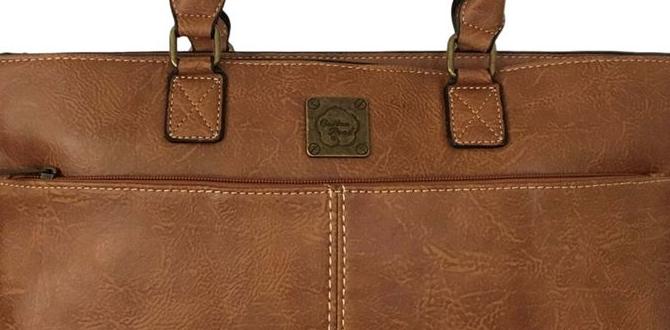For travelers heading to Beirut, understanding which areas are generally safer and which might warrant extra caution is key to a smoother, more enjoyable trip. This guide offers practical insights into navigating Beirut’s diverse neighborhoods, focusing on creating a secure and comfortable travel experience for you and your family.
Planning a trip to a vibrant city like Beirut can be incredibly exciting! It’s a place bursting with history, culture, and delicious food. But like any major city, it’s natural to wonder about navigating its different neighborhoods safely. You want to focus on experiencing the best Beirut has to offer, not worrying about where you are.
This guide is designed to give you a clear, straightforward picture of areas that are generally considered safe and well-trafficked, alongside insights into neighborhoods that might require a bit more awareness. We’ll break it down simply, so you can plan your adventures with confidence and ease. Get ready to explore Beirut with peace of mind!
Navigating Beirut: A Traveler’s Perspective
Beirut is a city of contrasts, known for its resilience and charm. For many visitors, the primary focus is soaking in the culture, enjoying the culinary scene, and exploring historical sites. Making informed decisions about where to stay and spend your time is a crucial part of any travel plan.
It’s less about fear and more about smart planning. By understanding the general landscape of the city, you can maximize your enjoyment and minimize unexpected situations, ensuring your journey is as comfortable and stress-free as possible. Think of it like choosing the best spot for a picnic – you want a place that’s pleasant and easy to access!
Understanding Beirut’s Neighborhoods
Beirut’s neighborhoods have distinct characteristics. Some are bustling commercial centers, others are quieter residential areas, and some have historical significance that draws tourists. The city has undergone significant development and changes over the years, and this constantly evolves.
For travelers, being aware of the general vibe and safety perceptions of different areas is helpful. This isn’t about painting any area with a broad brush, but rather about providing a traveler’s overview to help you feel more prepared and in control.
Safer Areas for Travelers in Beirut
When you’re looking for a comfortable and secure base in Beirut, certain areas consistently stand out. These neighborhoods are typically well-lit, have a strong presence of businesses and residences, and are generally frequented by locals and tourists alike. They offer a good balance of accessibility, amenities, and a sense of security, making them ideal for exploring the city or simply relaxing.
Downtown Beirut (Centre-Ville)
Once the heart of the city and rebuilt after the civil war, Downtown Beirut is a prime destination for many visitors. It’s characterized by its modern architecture, upscale shopping, historical mosques and churches, and vibrant nightlife. It’s a hub for business and leisure, meaning it’s usually busy and well-monitored. The presence of government buildings and major businesses contributes to a generally secure atmosphere. You’ll find luxury hotels, popular cafes, and beautifully restored heritage sites here, making it a fantastic place to start your exploration.
Gemmayzeh and Mar Mikhaïl
These adjacent neighborhoods are famous for their bohemian atmosphere, trendy bars, restaurants, art galleries, and boutique shops. They are incredibly popular, especially in the evenings and on weekends, attracting a lively crowd. The streets are often filled with people enjoying the cosmopolitan vibe. While lively, they are generally considered safe for walking around, particularly on the main streets. It’s a great area to experience Beirut’s social scene.
Tip: When exploring these areas at night, stick to well-lit main streets and be aware of your surroundings. The energy is infectious, and enjoying it responsibly is easy.
Hamra
Hamra Street is historically known as Beirut’s Champs-Élysées. It’s a bustling commercial street filled with shops, cinemas, universities, and a wide array of restaurants and cafes. It’s a very active area with a diverse mix of students, professionals, and shoppers. Its constant activity makes it feel safe and vibrant. You’ll find a more authentic, everyday Beirut feel here, with plenty of options for dining and shopping.
Achrafieh and Sodeco Areas
Achrafieh is one of Beirut’s most populous and affluent districts. It offers a mix of modern residential buildings, hospitals, universities, and shopping malls like ABC Mall, one of the largest in the country. The Sodeco area, within Achrafieh, is a well-known and central part of the district. These areas are generally considered safe, with a strong residential and commercial presence, offering a more settled and everyday urban experience.
Tabarja and Coastal Areas (North of Beirut)
While technically outside the immediate city center, areas like Tabarja, Fidar, and Jounieh along the coast north of Beirut are popular for resorts, seafood restaurants, and a more relaxed vibe, especially during warmer months. They tend to be more family-oriented and resort-focused, offering a safe and picturesque escape. Many tourists choose to stay in these areas for a beachside experience while still being within a manageable drive to the capital.
Areas Requiring Extra Caution or Avoidance
Navigating any city involves understanding which areas might present greater risks or are best avoided by tourists. In Beirut, perceptions can sometimes be influenced by past events or specific local dynamics. It’s important to remember that these are general observations, and specific situations can always change. The goal here is to provide information that helps you make informed decisions for your personal safety and well-being.
Understanding the Context of Certain Neighborhoods
Some neighborhoods might be perceived as less safe due to socio-economic conditions, specific political affiliations, or historical incidents. These areas are typically not tourist hotspots and are often characterized by being further from the city center or having a different demographic makeup. The key is to be aware and make sensible choices about where you venture, especially after dark or if you’re unfamiliar with the locale.
Informal Settlements and Outskirts
Like many large cities, Beirut has areas that are informal settlements or on the far peripheries. These might lack the infrastructure, services, or general safety oversight found in more central or developed areas. For tourists, it’s usually advisable to avoid these areas unless accompanied by a trusted local who can guide you. These are often areas where socio-economic challenges are more apparent.
Areas with Known Political or Security Sensitivities
Certain neighborhoods can be more sensitive due to political tensions or a history of unrest. While these areas might be part of the city’s fabric, they are generally not destinations for leisure travelers. It is wise to avoid direct engagement or prolonged stays in areas known for political demonstrations or where security presence is unusually high or low in a way that suggests instability. Staying updated with local news and following advice from your accommodation or the U.S. Department of State’s travel advisory for Lebanon can provide current insights.
Avoiding Unfamiliar Alleys and Low-Traffic Areas at Night
This is a universal travel tip that applies everywhere, including Beirut. Stick to well-lit, populated streets when walking, especially after dark. If you’re in doubt about a route or an area, it’s better to take a taxi or rideshare. Empty streets or dark alleys, no matter how picturesque they may seem, can present unseen risks.
Traveling with Specific Needs: Comfort and Essentials
For travelers who require specific personal care items, like adult or child diapers, accessibility and comfort are paramount. While most tourist-friendly areas in Beirut will have pharmacies and larger supermarkets stocking a range of products, it’s always wise to be prepared. Carrying a small supply of essentials with you from home for the initial part of your trip can alleviate immediate concerns. If you need to purchase items like adult diapers or child diapers, look for major pharmacies (e.g., Tria, Khoury Pharmacy) or large supermarket chains, particularly in the safer areas like Achrafieh or Hamra. They are more likely to have international brands and a wider selection available.
Practical Tips for Staying Safe in Beirut
Beyond understanding the geography of safety, a few simple practices can greatly enhance your security and comfort throughout your visit to Beirut.
Trust Your Instincts
If a situation or area feels off, it probably is. Don’t hesitate to leave or seek a more populated, well-lit place. Your intuition is a powerful safety tool, honed by experience.
Use Reputable Transportation
Opt for licensed taxis, ride-sharing apps (like Uber or Bolt, which operate in Beirut), or transportation arranged by your hotel. Avoid hailing taxis that look unofficial or are empty. Always agree on a fare beforehand if a meter isn’t used.
Stay Informed About Local Conditions
Keep an eye on local news and any government travel advisories. Roads can sometimes be blocked due to demonstrations, and it’s good to be aware of any developing situations. Hotel concierges or staff are also excellent resources for up-to-date local information.
Keep Valuables Secure
As in any busy city, be mindful of your belongings. Avoid displaying expensive jewelry or electronics unnecessarily. Keep your passport and important documents secure in your hotel safe.
Learn a Few Arabic Phrases
Knowing basic greetings and phrases like “hello” (Marhaba), “thank you” (Shukran), and “excuse me” (Afwan) can be very helpful and is often appreciated by locals.
Cultural Awareness
Be respectful of local customs and traditions, particularly regarding dress code when visiting religious sites. Understanding basic cultural norms will enhance your interactions and experiences.
Beirut Neighborhood Safety Summary Table
This table provides a quick overview of the general safety perceptions for travelers in different Beirut areas. Remember that conditions can vary within any neighborhood.
| Neighborhood/Area | General Safety Perception for Tourists | Notes |
|---|---|---|
| Downtown Beirut (Centre-Ville) | High | Well-developed, busy, presence of tourist attractions and businesses. |
| Gemmayzeh & Mar Mikhaïl | Moderate to High | Lively, popular nightlife and dining areas. Stick to main, well-lit streets. |
| Hamra | High | Bustling commercial street, active day and night with shops and eateries. |
| Achrafieh & Sodeco | High | Affluent residential and commercial district with malls and facilities. |
| Tabarja & Coastal Areas (North) | High | Resort and leisure areas, generally very safe and relaxed. |
| Informal Settlements & Far Outskirts | Low to Moderate | Requires local guidance; less infrastructure and potentially higher risks. |
| Areas with Political Sensitivities | Variable/Caution Advised | Avoid unless necessary; stay informed about local events. |
Preparing for Your Trip: Packing Essentials
While safety is a primary concern, comfort and preparedness go hand-in-hand. For travelers, especially those with families or specific needs, packing smart is crucial. This ensures that even if unexpected situations arise with personal care items, you’re covered.
For Adults and Children with Special Needs
If you or a child you are traveling with requires absorbent products, planning is key. Carrying a discreet supply can offer immediate peace of mind. For longer trips or extended stays, researching where to purchase them beforehand is a good idea. Many modern adult incontinence products offer confidence and discretion, similar to high-quality baby diapers. Consider products that are breathable and comfortable for warmer climates.
General Packing Hacks
- Comfortable Walking Shoes: You’ll be doing a lot of exploring!
- Lightweight, Breathable Clothing: Beirut can be warm.
- A Versatile Scarf or Shawl: Useful for sun protection, warmth, or modesty when visiting religious sites.
- Basic First-Aid Kit: Including antiseptic wipes, bandages, and any personal medications.
- Portable Power Bank: Essential for keeping your devices charged, especially if navigating with GPS.
- Travel-Sized Toiletries: Including sanitizing hand gel, which is always useful.
FAQs
Is Beirut safe for solo female travelers?
Many solo female travelers report positive experiences in Beirut, particularly in the well-trafficked tourist areas like Downtown, Hamra, and Gemmayzeh. As with any city, it’s advisable to exercise caution, dress respectfully, avoid walking alone in very deserted areas at night, and trust your instincts. Staying in reputable hotels or accommodations can also enhance safety.
What is the best area to stay in Beirut for safety and convenience?
For a combination of safety and convenience, Downtown Beirut, Hamra, Achrafieh, and the areas around Gemmayzeh/Mar Mikhaïl are excellent choices. These neighborhoods offer good access to amenities, attractions, and dining, with a generally secure atmosphere and plenty of people around.
Are taxis safe in Beirut?
Official, licensed taxis are generally considered safe, but it’s always wise to use them with caution. Using ride-sharing apps like Uber or Bolt is often recommended as they provide a record of your journey and driver details. If taking a traditional taxi, ensure the meter is used or agree on the fare before starting your trip.
Do I need to worry about political unrest when visiting Beirut?
Lebanon’s political situation can be dynamic. While tourist areas are usually unaffected, it’s wise to stay informed about current events through reliable news sources and government travel advisories. Major political events or protests can sometimes cause disruptions, so being aware and flexible is recommended. Generally, tourist activities continue as usual with minimal impact.
What should I do if I encounter a problem in Beirut?
In case of an emergency, the national emergency number in Lebanon is 112 for ambulance, fire, and police. For non-emergencies, contact your accommodation for assistance, reach out to your country’s embassy or consulate in Lebanon, or seek help from local authorities. Having travel insurance is also highly recommended.



